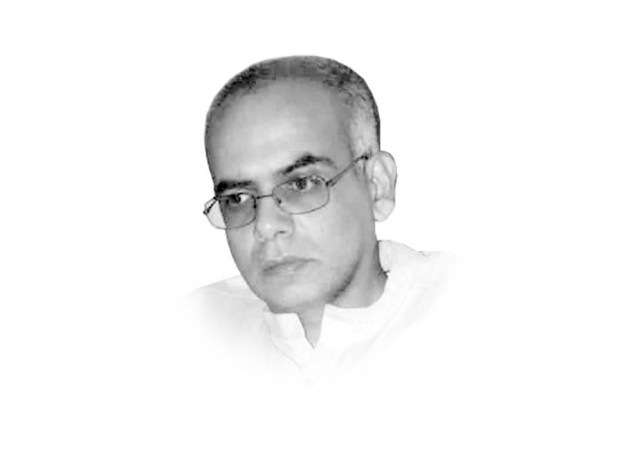Partitioning Punjab
Political manoeuverings aside, however, there is a deeper issue concerning the creation of a new province

The writer is a development anthropologist. He can be reached at ali@policy.hu
The beleaguered PML-N views the creation of the Janoobi Punjab Suba Mahaz with suspicion, perhaps as a strategic move by the establishment to undermine their chances of electoral success. The fact that the PTI has supported the demand for a new province has also jolted the ruling party further. Prominent parliamentarians from southern Punjab who have formed this new political front claim that their decision is primarily motivated by the aspirations of their constituents, and that many other politicians from the region are considering a similar move.
The PML-N is reaching out to its loyalists within southern Punjab to minimise the chances of other politicians from the area defecting, and to win back some of the defectors. The defectors have recently signalled that they could rejoin the PML-N if it makes clear its decision to create a new province in southern Punjab, rather than promising to mull over this issue after the general elections. These politicians are right to be cynical about the PML-N’s promises, given that the PML-N has not really taken this issue seriously for the many years that it has been in power already.
The demand for another province in southern Punjab is also complicated by the fact that the Movement for Restoration of Bahawalpur Province has rejected the idea to induct the region into a proposed new province for south Punjab. The leadership of the Bahawalpur movement instead aspires for the status of a full-fledged province, based on the historical understanding of terms whereby the princely state opted for induction into Pakistan.
It will be interesting to see how the PML-N and the PTI play their cards in response to the creation of the Janoobi Punjab Suba Mahaz. Political manoeuverings aside, however, there is a deeper issue concerning the creation of a new province which also needs to be duly acknowledged.
There is justifiable cause for carving out more provinces within Punjab based on the very legitimate imperatives of deepening democracy and making governance structures more capable to address the concerns of the ordinary citizens.
It makes little sense for a population of 110 million people to be administered by one provincial government. Yet, it is the sheer size of Punjab which enables its rulers to exert hegemony over the rest of the country. In resisting the demand for allowing neglected regions of the province to create their own provinces, the Punjab government is guilty of applying a ‘One-Unit rule’ of sorts, which had helped perpetuate dominance over East Pakistan.
Carving out smaller provinces also has the potential of improving efficiency and responsiveness of governance structures. Clearly, the demands of ordinary citizens within marginalised districts of southern Punjab province will reach the provincial government more easily if the provincial government is not situated in far-away Lahore.
It must be distressing for people in neglected districts to see the provincial government deplete its scare resources on mega projects which they will never get to see, or benefit from.
However, the creation of another province or two within Punjab will not automatically result in improving the lives of ordinary villagers and people living in small towns. For that to happen, the prevailing centralist tendencies within our political and governance culture need to be altered. Our lacklustre local government system needs to be overhauled. We need a new breed of local politicians and local government officials, who are capacitated, empowered and held responsible for addressing the needs of ordinary citizens. Expecting high-profile parliamentarians from southern Punjab to bring about this needed change would not be wise.
Published in The Express Tribune, April 27th, 2018.
Like Opinion & Editorial on Facebook, follow @ETOpEd on Twitter to receive all updates on all our daily pieces.















COMMENTS
Comments are moderated and generally will be posted if they are on-topic and not abusive.
For more information, please see our Comments FAQ